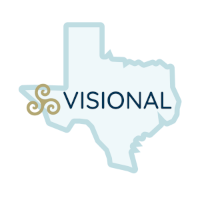Getting Lean And Loving It

Iterating with Lean methodology offers organizations a structured approach to continuous improvement, waste reduction, and value maximization. By embracing iterative cycles of experimentation, feedback, and adaptation, Lean empowers teams to deliver higher-quality products, enhance customer satisfaction, and drive sustainable growth in dynamic and competitive markets.
Trim Off The Production Fat
In today’s fast-paced and rapidly changing business landscape, organizations are constantly seeking ways to optimize their processes, improve their products, and deliver greater value to their customers. One methodology that has gained widespread adoption for achieving these objectives is Lean. This essay explores the principles, practices, and benefits of iterating with Lean methodology, elucidating its role in fostering innovation, efficiency, and excellence in organizations across various industries.
Understanding Lean Methodology:
Rooted in the principles of the Toyota Production System (TPS), Lean methodology emphasizes the relentless pursuit of waste reduction, continuous improvement, and customer-centricity. At its core, Lean advocates for the elimination of non-value-added activities, streamlining of processes, and empowerment of employees to drive incremental and sustainable improvements in every aspect of the business.
The Iterative Cycle of Lean:
Iterating with Lean methodology revolves around a cyclical process of Plan-Do-Check-Act (PDCA), also known as the Deming Cycle or the Shewhart Cycle. This iterative approach encourages teams to:
- Plan: Define objectives, establish metrics, and develop hypotheses for improvement.
- Do: Implement changes or experiments based on the plan.
- Check: Measure outcomes, gather data, and assess the effectiveness of the changes.
- Act: Adjust strategies, refine processes, and incorporate learnings to drive further improvement.
Key Principles and Practices:
- Value Stream Mapping: Identifying and visualizing the end-to-end processes and value streams to identify areas of waste and opportunities for improvement.
- Kaizen (Continuous Improvement): Encouraging small, incremental changes and empowering employees at all levels to contribute ideas for improvement.
- Just-in-Time (JIT) Production: Minimizing inventory and lead times by producing goods or services in response to customer demand, thereby reducing waste and improving efficiency.
- Respect for People: Recognizing the expertise and contributions of employees and fostering a culture of collaboration, respect, and empowerment.
- Customer Focus: Placing the needs and preferences of customers at the center of all activities and striving to deliver products and services that exceed their expectations.
Benefits of Iterating with Lean:
Iterating with Lean methodology yields numerous benefits for organizations, including:
- Enhanced Efficiency: Streamlining processes and eliminating waste leads to improved productivity and resource utilization.
- Higher Quality: Continuous improvement efforts result in higher-quality products, fewer defects, and greater customer satisfaction.
- Increased Flexibility: The iterative nature of Lean allows organizations to adapt quickly to changing market conditions and customer preferences.
- Empowered Teams: Engaging employees in continuous improvement initiatives fosters a sense of ownership, motivation, and commitment.
- Sustainable Growth: By delivering value to customers efficiently and effectively, organizations can achieve long-term success and competitive advantage.
Applications and Case Studies:
Lean methodology finds application across diverse industries, including manufacturing, healthcare, software development, and service-oriented sectors. Case studies of organizations such as Toyota, Amazon, and Spotify illustrate how Lean principles and practices have enabled them to achieve remarkable results, from reducing production lead times to enhancing customer experiences and driving innovation.
Iterating with Lean methodology offers organizations a systematic and structured approach to continuous improvement, waste reduction, and value maximization. By embracing the principles of Lean and applying iterative cycles of experimentation, feedback, and adaptation, organizations can streamline processes, enhance quality, and drive sustainable growth in dynamic and competitive markets. As organizations continue to navigate the complexities of the modern business landscape, Lean methodology remains a powerful tool for fostering innovation, efficiency, and excellence, empowering teams to deliver exceptional value to customers and achieve their strategic objectives.
Back to Blog Index
